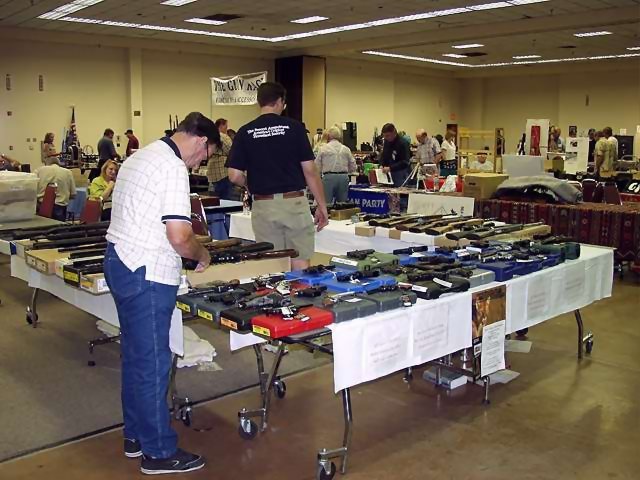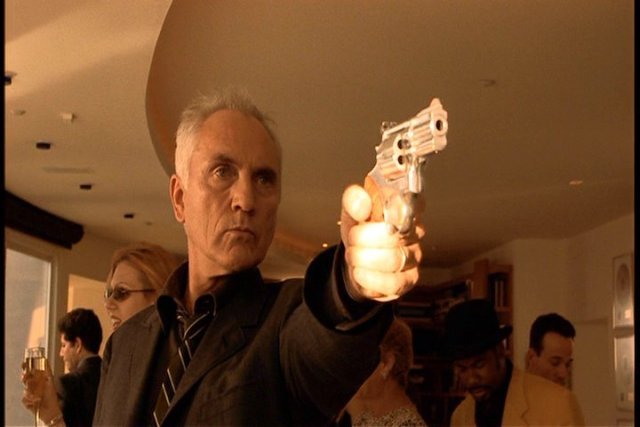|
|
Copyright
© A.D. 2007
by M. D. Van
Norman. |
|
|
This scene from The Limey
depicts an illegal gun purchase.
|
Wittingly or unwittingly,
the filmmakers were trying to perpetuate a legal fallacy commonly known
as
the gun-show loophole. In fact, this so-called loophole has very little
to do with gun shows. There are no legal exemptions for firearm
transfers at these shows. All federal, state, and local laws still
apply.
Under federal law, a non-licensed individual may legally give, sell, or
trade a firearm to another non-licensed individual, so long as such
transactions are infrequent and the recipients are not prohibited
persons. In other words, one citizen may transfer his private property
to another. State laws may vary, but this is the exemption that
gun-control proponents are really talking about when they refer to a
“gun-show loophole.”2
|

Gun shows are not exempt from federal,
state, or local firearm laws.
|
Gun shows are targeted
because they are events where large numbers of
firearms enthusiasts gather, making them convenient venues for
non-licensed individuals to sell or trade their private property.
Rather than attacking the private-property “loophole” directly, the
prohibitionists try to confuse the issue and frighten uninformed
voters, implying that gun shows are
somehow exempt from gun-control laws. Ironically, less than one percent
of crime guns originate from such shows.3
Had the fictional Wilson
attempted to make his purchase at a real gun
show, he would have most likely failed. As a convicted felon and
non-resident alien, he would have been prohibited from buying a firearm
by federal law. California law would have also required a safety
certificate and a waiting period. No doubt, Wilson would have simply
turned to the black market for his guns … just like most other
criminals. |

Less than one percent of illegal firearms
originate at gun shows.
|
1
|
This
tidbit can be found on the commentary track of the DVD release. The
filmmakers’ politics aside, The Limey
is still an excellent film.
|
2
|
With
a few very narrow exceptions, California law requires that all firearm
transfers go through a licensed dealer, so there is no “gun-show
loophole” here, but that still doesn’t stop disingenuous politicians
from campaigning to close it.
|
3
|
U.S.
Bureau of Justice Statistics, “Firearm Use by Offenders,” 2001.
|
|
|



